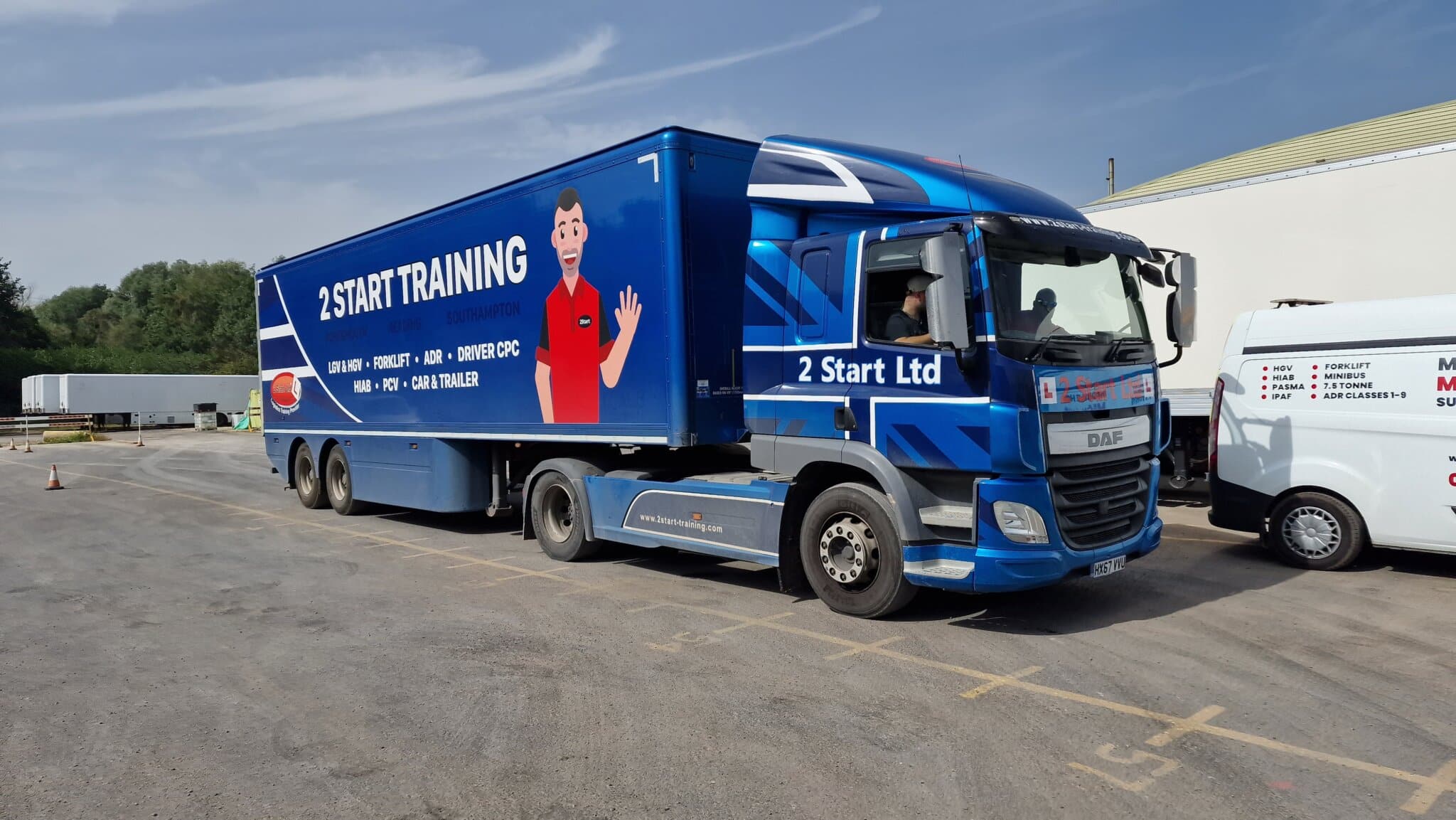As the talks regarding the HGV driver shortage are still as prominent today, many are still pondering over what can be done and if truck drivers are still in demand or not. From HGV Skills bootcamps, to apprenticeships and job centres trying to fill that cavernous void, we call “the driver shortage” in the Logistics industry. Many have chosen these avenues when beginning their Driver Training journey, and it has proven to be fruitful.
As of April 2024, the Department for Transport (DfT) is suggesting another solution to the ever-growing discussion- How about allowing students to complete some parts of their training before they receive their provisional HGV licence?
The New Proposals Outlined
In the published document from the DfT, titled Amendments to Licensing Restrictions: Bus, Coach and Heavy Goods Vehicles (HGVs), they discuss the potential to make definitive changes which should help reduce wait times for HGV/LGV training; improve numbers of public transport for individuals; as well as help those begin their career journey sooner.
As a result of the student’s waiting times, the Driver and Vehicle Licencing Agency (DVLA) have aided by reducing the time to review provisional licence applications for HGVs from 10 days to 5. However, they have suggested that some training modules could still be conducted while students wait for their provisional licence.

The burning question is if they should. What would this change in regard to insurance, safety, and public/private training areas? There are so many contingencies which must be discussed.
What does this mean for the students?
Students will be able to complete the initial Driver Certificate of Professional Competence (Driver CPC) training & tests, which includes their Module 2 theory & Module 4 walkaround checks, as well as their multiple-choice & hazard perception theory and tests.
There is also an implication in which students could be able to complete their 3a “off-road” reversing test without their provisional HGV licence. This part of the training and test is typically conducted on private land. While 2 Start operates all of its 3a training & tests on private land, some training providers may not.
So, what can we decipher from this?
Pros
Quicker Training Completion
By having this proposal implemented, students can complete the majority of their training and their tests sooner. Even just being able to complete their initial theory tests will make the student’s training journey swift. They won’t have to pause training simply because they must wait for their provisional HGV licence.
Relieving Waiting times
Letting students complete these components, prior to receiving their approved provisional application back, will also help relieve waiting times for both the student and the training provider they train with. This means that the student can begin training once they have sent off their application. The sooner they complete their training, which subsequently means they can get on the road with their new licence, tackling the shortage faster!

Cons
Greater Safety Risks
In order to apply for your provisional HGV licence, you must also complete a D4 medical assessment. This requires you to attend a UK General Medical Council (GMC) registered, and licenced General Practioner (GP). Once they complete the green sections of the D4 form, and only if you have completed the grey sections, this will be sent to the DVLA, along with your D2 provisional application.
Although the provisional does not dictate your ability to drive, the medical is in place for the DVLA to assess if you are medically fit to drive when it comes to operating a vehicle over 3.5 Tonnes.
This medical examination is thorough, and through the perception of your medical examiner, they will note any underlying known/unknown conditions you have.
This means that your provisional entitlement is decided based on whether you are medically fit to drive.
It goes without saying that this change could put students and those around them at great risk.
This is no doubt one big concern involving this proposition.

Each provisional application is reviewed by the DVLA, in which they read the individuals’ medical assessment. This is where the DVLA will determine whether or not the person in question is medically fit to drive.
In the worst case, the student could have an undiagnosed medical concern or issue while operating the vehicle for their reversing test, for example. This could result in an accident, causing casualties to bystanders, the student or the instructor. This also includes potential environmental and vehicle damage.
Who would want to be put in that position where they are at a greater risk?
In short, the student could be medically unfit to drive at this stage and be none the wiser until the application has been fully processed.
While this change could pose risks, we must consider real-world statistics as well. For example, here at 2 Start, each year we see less than 2% of our students’ provisional applications rejected due to the medical stage of this process.
Forfeited Payments
Another factor to consider is that if the student is also denied their provisional entitlement, they have wasted their time, efforts and money on their course and tests when they aren’t allowed to complete the rest of their training.
Take a deposit into consideration, or even “non-refundable” deposits. Booking a medical also incurs a cost from the outset, irrespective of your provisional outcome.
Could this mean that additional Terms and Conditions must be implemented, such as waiver agreements for the student?
So, who would have to pay for the training if the student is refused their entitlement? Would the training provider have to refund the student? Would this be a partial or full refund if so? Can the student claim the money back through the government? Or would the individual simply forfeit their money?
The document states that:
“Evidence from the industry indicates this cost is one the sector is willing to absorb…”

Let’s take a rough look at the numbers, and how they stack up in this scenario:
- Medical examination and assessment- £105
- Multiple Choice and Hazard Perception Theory- £18
- Module 2 Theory- £20
- Module 4 CPC- £315
- Lesson for the 3a off-road training- £348
- 3a off-road test- £40
That is a total of approximately £846 that could be lost from the training.
Although subjective, this seems a step in the wrong direction.
The snowball effect here can almost be visualised. The student could be refused their licence, so the provider halts their course. As a result, the student can become frustrated and angry with the training provider.
This can also put further strain on the individual, as they now can’t do what they intended, and their plans will have to change depending on their career choice.
The training school could also be scrutinised, as they are “hoping” that the student gains their provisional entitlement.
There are a lot of risks posed to each party involved in the HGV training journey.
Final Thoughts
This is currently only a proposal, which will be discussed in length about whether or not this is a feasible option to implement. This discussion/consultation ends 5th June 2024.
Also, it has been noted that they are “…seeking views from interested parties- including road haulage operators, training providers and trade bodies”
If this is of interest to you, you can give your thoughts through their survey.
Alternatively, you can also comment below to give your opinions as to this proposal.
Let us know your thoughts on the subject. do you think this is a good or bad idea?
What are your thoughts on the cost aspects? Would you be happy if you were a student and paid the training costs in question, completed the majority of your training, only to have your provisional HGV licence application rejected?
How would you feel?
And what if you had to accept that the money for training was not being refunded?
We want to hear your views.



Leave a Reply